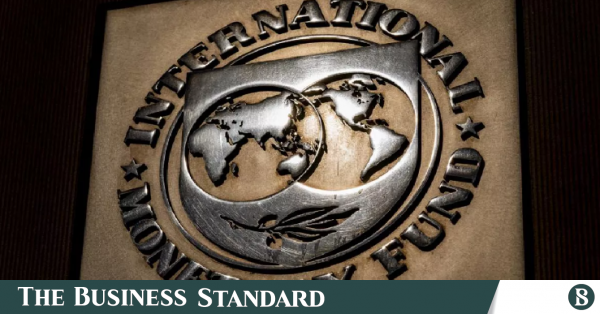The International Monetary Fund (IMF) has lowered the economic growth forecast for Bangladesh to 6% for the current fiscal, down from its April projection of 6.5%.
The downward revision came a week after the World Bank lowered its projection for Bangladesh’s GDP growth projection to 5.6% from 6.2% projected in April due to high energy cost, import curbs, insufficient dollars in banks and sluggish monetary tightening.
However, another lender, the Asian Development Bank in its July outlook retained its previous projection of 6.5%.
Official growth target is 7.5% for the fiscal 2023-24.
Economist Dr Ahsan H Mansur, executive director of Policy Research Institute (PRI) finds the downward revision of the growth forecast realistic, given the trend in the economy – deficit in financial account, high inflation, falling remittance, dollar shortage and continued decline in foreign reserves.
“I think growth might be lower than 5%. The GDP growth will not go as high as desired if macroeconomic stability cannot be maintained. And this is less likely to happen before the next election,” warned the economist, who had a long career at the IMF.
Massive fall in imports has been affecting production greatly and many industries are scaling down their production due to uncertainty ahead of election, Dr Mansur pointed out, explaining the factors behind downward revisions of growth projections by global lenders.
The IMF’s lower growth forecast for Bangladesh aligns to the lender’s forecast that the global economy will slow down this year and in 2024, with advanced economies to see even steeper decline as policy tightening starts to bite.
Emerging markets and developing economies are projected to have a modest decline.
In its outlook titled “Navigating Global Divergences”, which was released Tuesday, the IMF forecast the global inflation to decline steadily this year and the next due to tighter monetary policy aided by lower international commodity prices. But inflation is not expected to return to the target until 2025 in most cases, says the report.
For Bangladesh, it forecasts annual inflation at 9.7% this year and 7.2% next year.
A week before, the World Bank projected the inflation to stay at an elevated level in FY24, before easing to 8.5% next year and 7.7% in FY25, citing demand and supply side constraints. The global lender has identified uncertainty ahead of the election as a major risk to the economy.
Analysing the net external position of emerging Asia, the IMF in its latest outlook projected Bangladesh’s current account balance at -0.7% of GDP this year and -0.8% next year.
Bangladesh Bank data shows current account balance witnessed a surplus of $1.1 billion in July-August period of the current fiscal year from the deficit of $1.46 billion during the same period last year.
Deficit in the country’s financial account balance swelled to $2.02 billion at the end of August, putting further pressure on the dwindling forex reserves which stood at $21.15 billion at the end of September.
Zahid Hussain, a former lead economist of the World Bank’s Dhaka office, told The Business Standard that the current account surplus was mainly because of the decline in imports, which was not good for the economy in the long run.
In its global outlook, the IMF says despite the disruption in energy and food markets caused by the war, and the unprecedented tightening of global monetary conditions to combat decades-high inflation, the global economy has slowed, but not stalled. “Yet growth remains slow and uneven, with growing global divergences. The global economy is limping along, not sprinting,” it says.
Inflation is gradually being brought under control. But a full recovery toward pre-pandemic trends appears increasingly out of reach, especially in emerging markets and developing economies, the lending agency says in its latest outlook released on 10 October.



